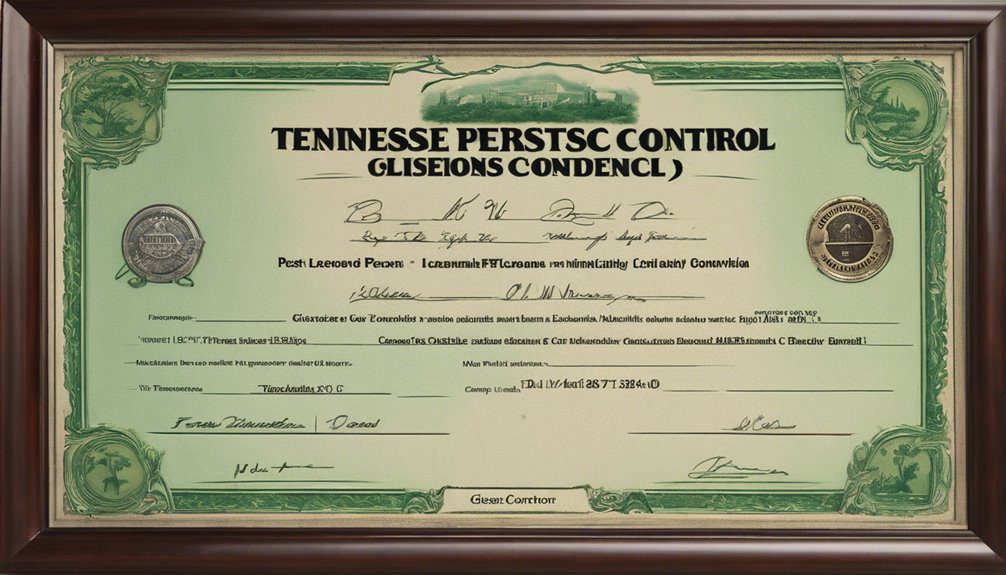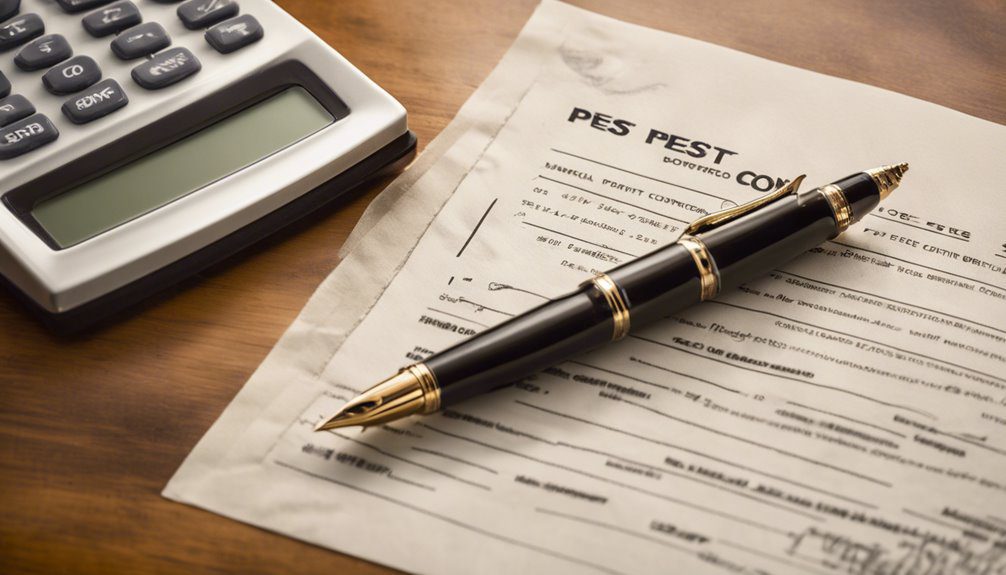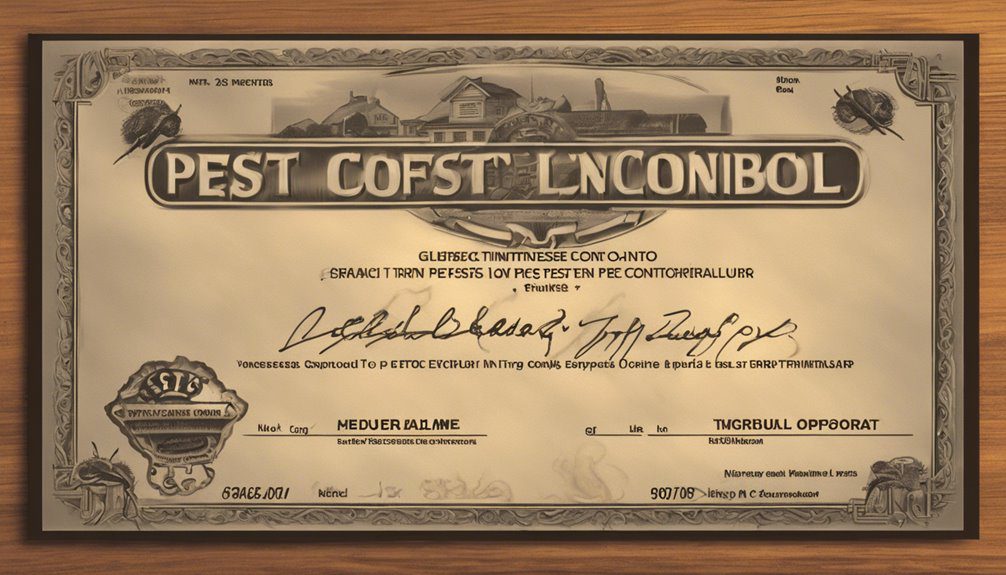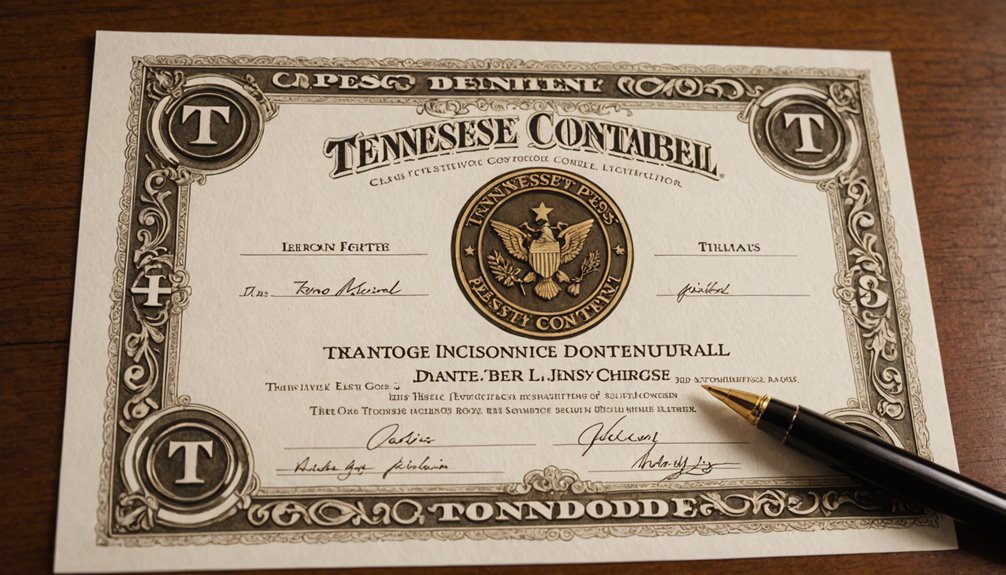When you think about starting a pest control business in Tennessee, understanding the pest control license bond is essential. This bond not only protects your clients but also safeguards your reputation in a competitive market. To secure it, you'll need to meet specific requirements that demonstrate your commitment to professionalism. But what exactly do these requirements entail, and how can they impact your operations? Unpacking these details could significantly influence your success in the industry.
Understanding the License Bond

A Tennessee pest control license bond serves as a crucial safeguard for both consumers and pest control operators. This bond essentially acts as a financial guarantee that you, as a pest control operator, will adhere to state regulations and ethical practices in your business.
If you fail to meet these obligations, the bond provides a source of compensation for any damages caused to consumers due to negligence or wrongful actions.
Understanding the license bond is vital for you to protect your business and build trust with your clients. It shows you're committed to maintaining high standards and operating legally.
The bond also covers potential claims arising from improper pest control methods, ensuring clients have recourse if something goes wrong.
For consumers, having a pest control operator bonded means you can feel secure knowing there's a safety net in place. If an operator doesn't perform their duties correctly, you can file a claim against the bond for compensation.
This fosters accountability, encouraging operators to prioritize quality and compliance in their work. Overall, the bond is an essential component of the pest control industry in Tennessee, benefiting both parties involved. Additionally, the bond amount typically reflects the level of risk associated with the industry, ensuring adequate protection for consumers.
Application Requirements
When applying for a Tennessee pest control license bond, you'll need to meet specific requirements to ensure compliance with state regulations.
First, you must possess a valid pest control license issued by the Tennessee Department of Agriculture. This demonstrates your qualifications and understanding of pest management practices.
Next, you'll need to provide proof of liability insurance. This insurance protects your clients and the public from any damages that may occur during your pest control operations. Make sure your coverage meets the minimum requirements set by state regulations.
Additionally, you'll have to submit a completed application form. This form typically includes your personal information, business details, and any relevant experience in pest control.
Be prepared to provide references as well, as they may be required to verify your credibility in the industry.
Lastly, you'll need to select a surety company to issue your bond. The bond amount required will depend on your specific business operations and the scope of your pest control services.
Ensure all documents are accurate and submitted on time to avoid delays in obtaining your license bond.
Costs and Fees

Understanding the costs and fees associated with obtaining a Tennessee pest control license bond is vital for budgeting your business expenses. The primary costs you'll encounter include the bond premium, which typically ranges from 1% to 15% of the bond amount, depending on your creditworthiness and the bonding company's criteria.
For instance, if your bond amount is set at $10,000, you might pay anywhere from $100 to $1,500 annually. Additionally, some companies may charge an application fee or processing fee, so it's wise to inquire about any hidden costs upfront.
You'll also want to factor in the potential costs of renewing your bond, as most bonds need to be renewed annually. If your business expands or your bond amount changes, this can affect your premium as well.
Lastly, remember to consider the costs of related licenses or permits that might be necessary for your pest control business. By being aware of these fees, you can ensure you're financially prepared and can make informed decisions about your pest control operations in Tennessee.
Compliance and Regulations
Navigating the maze of compliance and regulations for pest control in Tennessee is crucial for your business's success. You need to understand the specific laws governing pest management to operate legally and effectively.
First, ensure you're familiar with the Tennessee Department of Agriculture's requirements, as they oversee licensing and certification for pest control operators.
Next, you must obtain the necessary licenses, which include a business license and a pest control license. You'll also need to provide proof of liability insurance and a surety bond, which protects your clients in case you fail to meet your obligations.
Regularly updating your knowledge of pesticide regulations and safety protocols is vital, as these can change frequently. Additionally, understanding the importance of immigration consultant bonds can offer insights into how bonding practices enhance accountability in service industries.
Don't overlook the importance of employee training. Make sure your staff is well-versed in safety practices and pest control techniques, as this not only ensures compliance but also enhances customer satisfaction.
Lastly, keep meticulous records of your services, chemicals used, and any client communications. This documentation will be crucial if you face any compliance inquiries or audits.
Benefits for Pest Control Operators

Operating a pest control business in Tennessee not only requires adherence to compliance and regulations but also presents numerous benefits for licensed operators.
First and foremost, having a pest control license enhances your credibility. Customers are more likely to trust your services when they know you've met the state's stringent requirements. This trust can lead to increased customer loyalty and referrals.
Additionally, being licensed allows you to access a wider range of pest management products and techniques. Many suppliers only sell to licensed professionals, giving you an edge over unlicensed competitors.
You'll also stay updated on the latest industry practices and innovations through training and continuing education opportunities, ensuring you provide the best service possible.
Moreover, with a license, you gain legal protection. If a dispute arises, your compliance with regulations can serve as a defense, safeguarding your business against potential liabilities.
Lastly, many insurance companies offer lower rates for licensed operators, helping you save money while protecting your business.
Conclusion
In summary, securing a Tennessee pest control license bond is essential for your business. It not only protects you from potential financial losses but also enhances your credibility with clients. By meeting the application requirements and maintaining compliance with regulations, you can build trust in your services. Ultimately, having this bond demonstrates your commitment to professionalism and accountability, ensuring a successful and reputable pest control operation in Tennessee.


